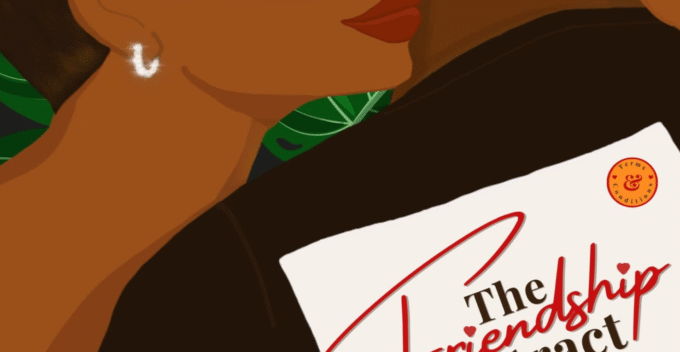Imagine someone who owes you a huge sum of money dies. What will you do? If you have the opportunity to bring the dead back to life to pay your debt, how cool would that be?
Table of Contents
Under normal circumstances, the last thing a grieving family member wants is to start demanding their debts from dead relatives. However, some debts cannot be easily forgiven or forgotten. As much as you can sue anyone for almost anything, cloning a dead relative and suing them for unpaid debts involves multiple complex legal and ethical issues.
In this write-up, you will discover whether or not it is possible to clone a dead relative and sue them for unpaid debts and other laws about debts and deceased relatives.
Legality of human cloning
Human cloning for reproductive purposes is illegal in the United States under the Human Cloning Prohibition Act of 2003, and government financing for human cloning research is not permitted.
In the U.S., cloning is regulated under the FDA’s Public Health Service Act, whiles Japan acts on Regulation of Human Cloning Techniques, 2001.
In the future, assuming human cloning is scientifically possible and legally permitted, the clone will not be the same as the deceased individual. The process creates a new individual and not a resurrection of the original person.
If even the clone is genetically identical to the deceased, it would be legally recognized as a new and separate person with no legal or personal continuity to the deceased.
Global legal perspective
About 46 countries, including Australia, Canada, France, Germany, India, Israel, Japan, the UK, and many European nations, have formal bans on human reproductive cloning.
Here are some regional and country specific laws about human cloning.
- The United States: Prohibits reproductive cloning but therapeutic cloning is permitted in some states.
- European Union: Most EU countries like, Germany, France, and Italy, bans reproductive cloning.
- United Kingdom: Reproductive cloning is illegal
- China: Bans reproductive cloning
- India: No specific rules
- Japan: Bans reproductive cloning
- South Korea: Bans reproductive cloning
What the law says about debts and the deceased
Under most legal systems, debts are tied to the legal identity of the deceased. Once a person is dead, their debts are paid from their assets. In the United States, under the Bankruptcy Code (11 U.S.C. 524), creditors can pursue the assets (estates) of the deceased, but once the assets are distributed or closed, the personal liability ends.
As seen in Re Marriage of Buzzanca, 1998, the court recognized personhood based on birth and consciousness and based on genetic duplication.
Debts or liabilities require a contractual or legal obligation, which the clone never assumed. Therefore, suing the clone for the deceased’s debts would not succeed. The 14th Amendment prohibits holding individuals liable for someone else’s debts solely due to biological or genetic similarities.
Key facts about debt recovery from a deceased person
- When a person dies, their debts do not automatically go away. They are becoming the obligation of the deceased’s estate (assets).
- Family members are not personally responsible for paying the deceased’s debts.
- The executor named in the will of the deceased is responsible for paying off the deceased’s debts.
- Creditors have a limited amount of time, usually 6 months to 2 years, to file claims against a deceased estate.
- If the estate funds are not enough to cover all debts, debts are paid in order of priority until funds run out. The rest of the unpaid debts are written off.
Can you sue a clone for another’s debts?
Suing a clone for a deceased relative’s debts would be equal to suing a child for their parent’s liabilities. The law does permit that.
It is highly unlikely, because the clone is a different individual with its own identity and is not responsible for the debts of the original. The clone would not have contractual or legal obligations arising from its progenitor’s debts. Therefore, there is no legal basis to claim the debts incurred by another person.
Is it possible to clone a dead relative?
Theoretically, it is possible to clone someone who is dead. Cloning requires a viable DNA strand; however, DNA quickly breaks down fairly quickly after death. Cloning is currently impractical in many countries due to legal and ethical challenges. Aside from that, a clone would not be the same as the deceased largely due to lack of memories and experiences.
What if the clone has the same memories?
Assuming the clone is implanted with the original person’s memories, it might be enough to establish liability. In most cases, memories do not equate to legal responsibility. Since human reproductive cloning is banned globally, there are no legal cases addressing this scenario directly.
The court system considers legal identity based on citizenship, documentation, and continuity of legal personhood, not subjective experiences. In a situation where the clone is a legal continuation of the deceased, there might be grounds for liability.
Is cloning the dead the same as resurrecting the dead?
Cloning the dead is the same as resurrection. Cloning involves creating a copy of the deceased with the same DNA, while resurrections imply restoring the original individual to life. Whereas cloning is scientifically possible, resurrection is not feasible.
Conclusion
The idea of human cloning has become a subject of international debate since the Sheep was cloned in 1996. Trying to sue a clone for a dead relative’s debt could raise serious ethical and human rights issues.
Cloning requires years and millions of dollars, which might even exceed the typical debt recovery efforts. Even if the cloning is successful, the clone would be a new person and not liable for the debts of the deceased.
According to the law, once a person is dead, their debt does not vanish. Creditors must pursue the estate (assets) of the deceased.
Legally, you cannot clone a dead relative. Even if you manage to clone them, you will not be able to sue them because the law recognizes legal personhood based on birth and consciousness, and not DNA or genetic identity.

















